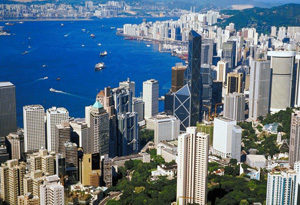In the days leading up to China’s taking over Hong Kong on July 1, 1997, the media and political pundits were spouting cautionary tales of how China would ruin Hong Kong’s success as Southeast Asia’s financial center. Were the foretellers of doom correct in their outlook? Not at all, says David Meyer, visiting professor of business at Washington University in St. Louis. In fact, ten years later, both Hong Kong and China have reaped the benefits.

“The first question people want to know is: ‘Is Hong Kong worse or better off?’ The answer: much better off,” Meyer said. “Beijing does everything in its power to protect Hong Kong and support it as an international business capital. Chinese officials repeat that sentiment all the time. It’s a part of their law and they’ve stuck to it.”
Meyer has written extensively on Hong Kong as a financial center and is currently researching the network behavior of leading financiers in Hong Kong and other Asian cities. He says it’s almost amusing to think of how worried people were that Hong Kong would be damaged by the rule of mainland China.
“During the 1990s people thought that the handover would mean that Hong Kong is being taken over and invaded by China,” said Meyer. “But now it’s more like Hong Kong has invaded China. It’s the behemoth of Southern China. Hong Kong has always been a major trade center, but now, it’s a massive capital that has practically annexed China’s southern provinces.”
Hong Kong businesses are also investing in China. Meyer said that it’s irrational to fear investing in China. Top executives and officials in Hong Kong have a very strong influence on the economic policies Beijing is establishing.
“Hong Kong’s business leaders regularly go to Beijing to give advice to government ministries and to obtain insights about future policies. The ties are very strong,” Meyer said. “Executives at top banks will fly to Beijing to help them figure out new regulations. Beijing seeks the advice of Hong Kong’s public and private sector. Hong Kong is not being told what to do. It’s all being integrated to get businesses moving.”
Professor Meyer is available for live or taped interviews using Washington University’s free VYVX or ISDN lines.